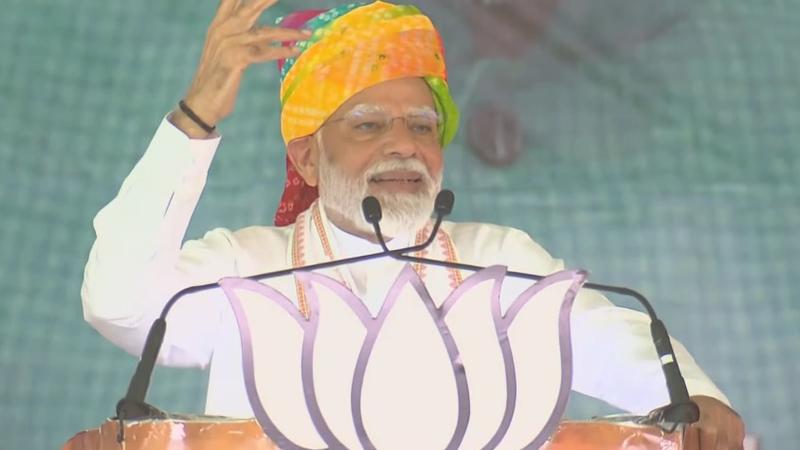Published 14:35 IST, April 22nd 2024
Stakes for India’s election outcome widen
Global investors are largely indifferent to those things as long as the political environment.

Free-for-all?. Indians have started voting in the world's biggest election, and some politicians are in too generous a mood. Prime Minister Narendra Modi’s Bharatiya Janata Party and the opposition Congress both promise to create jobs in their manifestos published this month. They differ on how to achieve the goal and on government spending.
The duo have opposing ideological social visions for the country, with Congress actively embracing the country's religious minorities and BJP talking up its construction and renovation of Hindu temples. Global investors are largely indifferent to those things as long as the political environment remains stable.
They care about reforms, and perhaps most about how spending plans in the world's fifth largest economy will impact the $208 billion budget deficit, which Modi has pledged to trim by March 2026 to 4.5% of GDP, down from 5.8% currently. The government's financial response to Covid-19 was frugal compared to rich countries but the spending still left a mark.
For its part, the BJP commits itself to maintaining "fiscal prudence". It plans to stick with its current track. The manifesto – titled "Modi’s Guarantee" -- pledges to continue a food subsidy covering 57% of the world’s most populous country launched in 2020. Free healthcare for poorer families will stay, too. It sounds generous but India's subsidy bill is set to fall 7% in the current financial year compared to last year.
Meanwhile, Congress, which lost power in 2014, has made social and economic justice its biggest plank. Latching on to disaffection about insufficient high-quality jobs and inequality, it promises handouts including annual cash transfers of 100,000 rupees ($1,197) to the worst off households. It also commits to passing an act allowing graduates to receive paid apprenticeships, with a one-off payment of 100,000 rupees. It doesn't mention fiscal management.

Whoever forms the next government will be on a steep climb to narrow the budget gap. Modi gets credit for establishing relative financial stability over the past decade, and inflation is largely under control. But the conflict stirring in the Middle East between Iran and Israel presents a major risk because India is a net energy importer. What's more, to maintain investment and meet the deficit goal, India needs private spending to pick up so it can trim its own outlay.
On balance, the BJP sounds more financially responsible and that will soothe investors; Modi's party is widely expected to win. It held back from committing to key reforms of land and labour laws that investors want, which may be politically unpopular.
Whether or not there is a surprise result, the impact of profligacy will be more keenly felt than before as India is welcoming more foreigners into its sovereign debt market which is being added to global indices. Any slips could be harshly punished.
Updated 14:35 IST, April 22nd 2024





